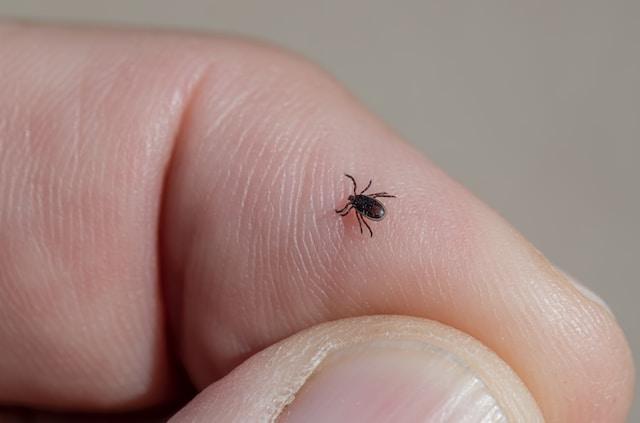
Before, I used to think that ticks in puppies was nothing too serious but I did not know that some disease can be transmitted through ticks and I also did not know there was a right way to remove ticks, I thought anyhow I removed them was fine.
However, after I was enlightened by other puppy parents and vets on the Facebook dog group I belong to, I began to take fleas seriously and I advise you to do so too.
I decided to write this blog post to create awareness about ticks and help puppy parents know everything they need to know about ticks in puppies.
What are ticks in puppies?
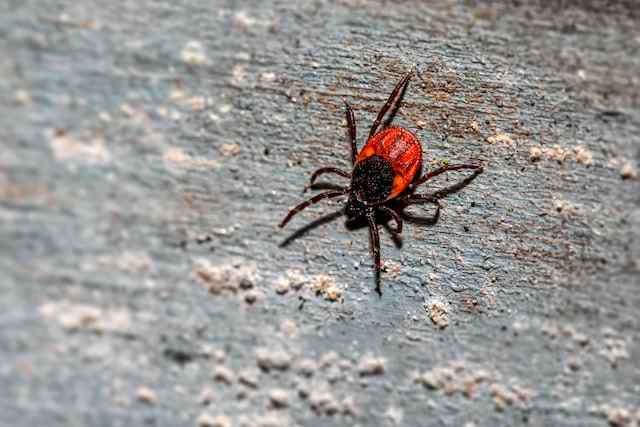
Ticks are parasites that attach themselves to the skin of animals and humans and voraciously feed on their blood.
Most people think ticks are insects but there are not, there are arachnids that are related to mites and spiders.
Though there are several species of ticks, each specie belongs to one of three families.
Ticks in puppies tend to be about the size of an apple seed when they have not been fed, different species of ticks have different colors. Not all ticks look the same, most time the appearance of the ticks depends on which stage of their life cycle there are on.
Some species of ticks prey on specific animals but most ticks prey on various animals even humans. Different species of ticks suck blood in different ways. Ticks can survive several months to years without food as long as the environment is favorable to them.

It has been noticed that most species of ticks have a particular area in the body that they like to feed from but if there are a lot of ticks on a puppy, ticks just attach themselves anywhere they can feed from.
Different places in the body that ticks have been noticed to like are the head, neck, under the tail, pubic area, shoulders, nasal passage, ears, and anus.
When a tick crawls on your puppy’s skin and takes a blood meal from its host, after being attached to the skin for several days, the tick’s body would swell with blood and fall off causing bites.
Tick bites are benign and typically not painful and most times only irritate the skin but sometimes the bites could cause diseases and if left untreated, can lead to serious harm to your puppy.

Diseases like rocky mountain spotted fever, Lyme disease, and, and tick paralysis.
Some species of ticks tend to cause more harm to your puppy than others. Species like the brown dog tick, the lone star tick, the Australian paralysis tick, the American dog tick, and the deer tick tend to harm puppies most times.
Paralysis ticks are one of the most dangerous parasites that can affect your puppy, they produce toxins that cause paralysis in dogs and cats.
Paralysis ticks are typically found along the east coast of Australia, from Cape York in the north, all the way down to lakes entrance in Victoria but sometimes they can be found outside this area, especially in the greater Melbourne area.

The brown dog tick is very common in puppies that stay in tropical or semi-tropical areas and it commonly transmits a disease called ehrlichiosis.
Ehrlichiosis is a tick-borne parasite that attaches to the white blood cells and for a majority of puppies, it causes a lot of issues but it initially starts with an acute infection where your puppy would have a fever and enlarged lymph nodes.
There is a common misconception that if your puppy has taken the Lyme vaccine, it won’t get ticks. This is a lie, you would still find ticks on them.
Symptoms of ticks in puppies

Symptoms of ticks include skin irritation, swollen lymph nodes, limping or lameness, coughing, vomiting, anemia, retching, change in voice or bark, loss of appetite, fever, lethargy, and labored or rapid breathing.
One major symptom of paralysis ticks is loss of coordination of your puppy’s back legs.
How do puppies get ticks?
Puppies usually get ticks from the great outdoors when they go to play, poop, or exercise.
When your puppy is outdoors, there are ticks in the grass or shrubs waiting for your puppy to come close.

Ticks are sensitive to heat and when your puppy exhales it attracts them because the carbon dioxide your pup’s exhales alerts them that there is a suitable host nearby.
When any part of your puppy’s body comes close to a tick, the tick would grab on with its front legs, then it would go deeper into the fur to find a part on your puppy’s skin that is suitable for it to attach itself and feed.
If where you live is humid, grassy, or wooded, your puppy is more prone to get ticks.
Diagnosis for tick bites in puppies

If you see a tick in your puppy and you have removed it, it is not necessary going to the vet unless you begin to notice some symptoms after the ticks.
If there are symptoms, your vet would likely conduct a couple of blood tests to check for antibodies caused by diseases transmitted through ticks.
Some diseases are transmitted by diseased tick bites that could cause harm to your puppy’s organs. One example is Lyme disease which affects the kidneys, that is why most vets run a urinalysis when tick bites are noticed, so they could check how healthy your puppy’s organs are.
Treatment of ticks in puppies

The best you can do for puppies who are not showing any symptoms of tick-borne disease or paralysis is to find ticks and remove them, I would be teaching you how to do so and you should also use something like a tick spray, drugs for ticks, or repellents.
There are drugs like sentinel or nexGard used to treat ticks, you should ask your vet for what drug or spray would be suitable for killing ticks in your puppy.
Diet is very essential if you notice your pup has ticks because your puppy’s immune system has to be strong just in case the ticks come with or transmit any disease.
How to remove ticks from puppies

Ticks are usually found around the head and neck area but there also in other places like the belly, so you should thoroughly check every part of their body.
Move your fingertips through your puppy’s coat gently in a way you can feel its skin, and be observant of any bumps. Begin from your puppy’s head and continue till you reach your puppy’s legs and paws. Don’t forget to check the mouth, the ear, and in between their paws.
Lay your puppy on its back, so you can check the belly, armpits, and inner thighs.
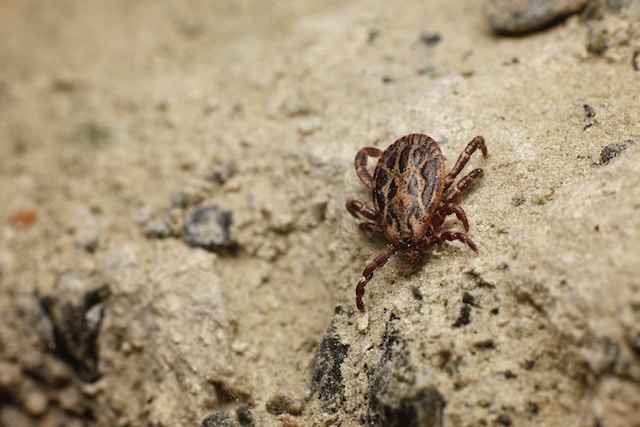
If you see any ticks, put on a glove, and get a blunt nose tweezer.
Use the tweezer to grab the tick, make sure you are grabbing the part of the tick closest to your puppy’s skin, then gently and slowly pull straight upward.
Make sure you step on the ticks and kill them, so they don’t crawl back in your puppy. Do not crush the ticks with your bare hands or legs.
Natural home remedy for ticks in puppies

Some puppy parents have told me that they don’t feel comfortable using the regular tick sprays and repellent because they feel some of them have chemicals that are not safe or they have experienced their puppy being harmed by one of those tick sprays.
So today I would be teaching you how to make a natural tick spray for those puppy parents that prefer a holistic option for killing ticks on their puppy.
To prepare this natural tick spray, you would be needing witch hazel, coconut oil, neem oil, cedarwood oil, all-natural castile soap, and a little spray bottle of 200ml to 250ml.
Add 125 ml or ½ a cup of witch hazel with aloe to the bowl or whatever you are using to prepare the tick spray. Witch hazel is great for dealing with any type of irritated skin and the aloe is a great anti-inflammatory.

Add 2 tablespoons of coconut oil, coconut oil would help form a great base for the essential oils we are going to add. It also soothes irritated skin and also has insecticidal properties.
However, if your coconut oil is liquid at all temperatures, I suggest you don’t use it for this remedy because the lauric acid that repels ticks and fleas has been removed from it.
Add 2 ml of neem oil. Neem oil comes from the neem tree in Asia and is a very good anti-insecticidal essential oil.
Add 2 ml of cedarwood oil which is 40 drops. Cedarwood oil is also another anti-insecticidal essential oil, it comes from the cedar tree. Extensive studies have shown that it is very beneficial for repelling fleas and ticks and it is also shown to be safe for dogs and cats.

When preparing a natural tick and flea spray and the essential oils you are using are concentrated, as long as it is for topical use and applied at 2 percent or less dilution they are considered safe for your puppy.
In this remedy, we are using 2 ml of neem oil and 2 ml of cedarwood oil and when that is compared to the 125 ml of witch hazel and 2 tablespoons of coconut oil, it is less than 2 percent.
Lastly, we would be adding 1 tablespoon of all-natural castile soap, this would help break up the oil, so the oil can mix with the witch hazel. it can do so because it is an emulsifier.

Castile soap also has insecticidal properties and would kill ticks and fleas.
Mix everything thoroughly, pour it into the spray bottle, and shake well.
Spray it on your puppy then use a flea come to brush it through their fur. You can do this 2 to 3 times a week.
Prevention of ticks in puppies
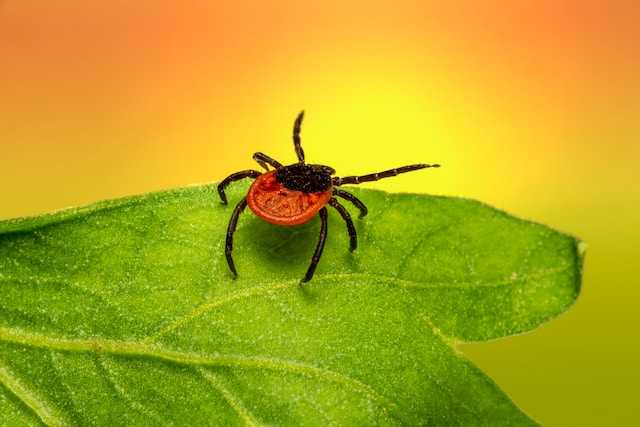
To prevent ticks, you can ask your vet to recommend tick prevention you can use on your pup year-round. There are a lot of medications that are used to prevent ticks like Sentinel, Nexgard, and simparica.
Some puppy parents use a tick collar on their puppies to prevent ticks, I have heard them talk about the serest collar.
But all these preventive methods would depend on your puppy’s age and other factors, so you should consult your vet before trying any preventive methods.
I would like you to know that tick deterrents are different from tick preventives.
Tick preventives are pesticides prescribed by the vet that prevent ticks, there could have side effects while tick deterrents make your puppy less attractive to ticks, so you might still see one or 2 ticks but they might not be able to crawl into your puppy’s fur.

Tick deterrents are safer and usually don’t have any side effects compared to tick preventives.
Also, the fact that you are using a tick preventive or deterrent does not mean that if your puppy goes to places with a lot of ticks you wouldn’t see ticks on it, you may see ticks on them but the tick would be able to live on your puppy and would either die or fall off.
Make sure your puppy does not go to areas with tall grasses or areas where ticks are prevalent. Check your puppy for ticks after any outdoor activity.
You should also take care of your environment, ensure the grass is very short and try using pet-safe insecticide in your yard.

Using a tick comb to brush your puppy after outdoor activities would do a great job of trapping any ticks that have climbed your puppy.
One thing I like to do after my puppy comes back from places that might be tick infested is to use a lint roller on its coat, this would help to pick up ticks that are still at the top of its coat before they get down and attach themselves to the skin.
It has been noticed that parasites are attracted to the weakest of species let me explain, they have been situations where people with a lot of puppies have noticed that some would be heavily infested with ticks while some would just have 2 to 5 ticks.

Puppies with a strong immune system would be able to address external parasites better. Factors that can affect the immune system are nutrition, skin ph, vitality, and gut biome.
So you should make your puppy vibrantly healthy on the inside because that would make them less attractive and less hospitable to external parasites.
Diet is very important for a strong immune system. Giving your puppy fresh living whole, unadulterated food would offer a more healthy species and appropriate nutrition which would allow them to absorb and process the nutrients they need for a highly functional immune system.
Things like vital nutrients, enzymes, and antioxidants can only be found in unadulterated foods.

You can use fresh garlic to boost your pup’s immune system, do not use garlic supplements or processed garlic because the medicinal compound in garlic only lasts about 8 hours after the garlic has been grounded or chopped.
I know you might be thinking “Isn’t garlic dangerous to puppies?”, too much garlic is not good for your pup but a reasonable amount is okay. You should check the tremendous amount of garlic that was used for the research that says garlic may not be safe for dogs.
If you want to feed your puppy garlic, I suggest ¼ teaspoon for 15lbs of body weight daily.

Another preventive measure I would suggest is that if you stay in a tick endemic area, instead of doing a traditional heartworm test every spring, you should do a 4DX that is done through Idexx or an acuplex check that is done through Idexx.
Those two blood test I mentioned check for heartworms but they also check for exposure to tick-borne diseases which is present most times even if your puppy don’t show symptoms. It may cost an extra $10 but it’s worth it.
FAQs about ticks in puppies
What kills ticks on puppies instantly?
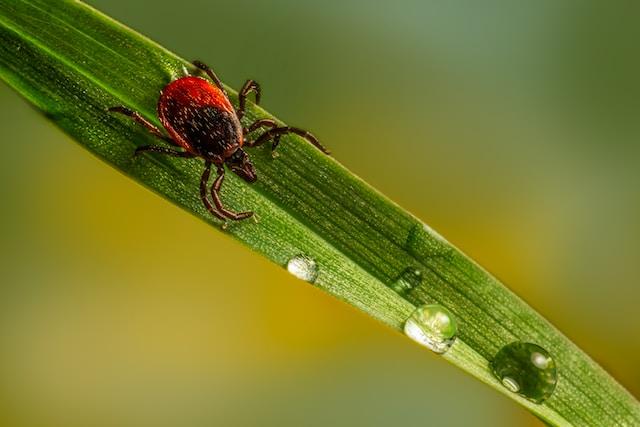
They are a lot of tick deterrents you can try but you should ask your vet first so that he/she would tell you the one most suitable for your vet.
Are ticks in puppies normal?
Yes, tick in puppies is a normal thing to see but that does not mean it is a good thing.
Can humans get ticks from puppies?
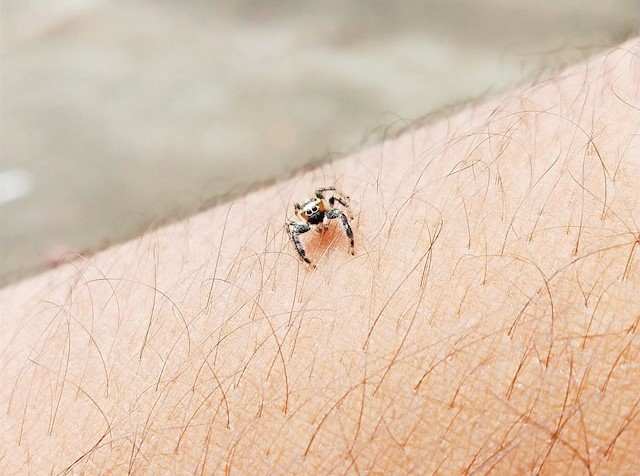
Yes, humans can get ticks from puppies but it is very unlikely. Most times humans get ticks from the vegetation in their environment.
Can ticks harm puppies?
Yes, ticks can harm your puppy. Asides from the anemia your puppy can get from ticks feeding on their blood, ticks could also cause a range of illnesses like paralysis to Ehrlichiosis.
how do you get rid of ticks on puppies naturally?

There are some natural oils you can use to rid of ticks on your puppy. We talked about how to make a natural tick spray in this post, scroll up if you missed it.
Can puppies get parvo from ticks?
Studies have shown that hard ticks retain canine parvovirus after inoculation but do not get infected and there have not been any reports of puppies getting parvo from ticks.
What smell do ticks hate?
Ticks hate the smell of neem oil and apple cider vinegar.
Important information

I am not a vet, any advice shared in this post is from my personal experience, deep research, advice from puppy parents, and vets in the Reddit and Facebook dog groups that I am a member of.
Some puppies die yearly because of tick-borne diseases due to the ignorance of their owners, please share this post with groups or people that may need it, you could just save a puppy’s life without knowing.
Related post
everything you need to know about Giardia in puppies to save your puppy’s life
everything you need to know to about Tapeworm in puppies to keep your puppy safe
Everything you need to know about Hookworm in puppies to keep your puppy alive